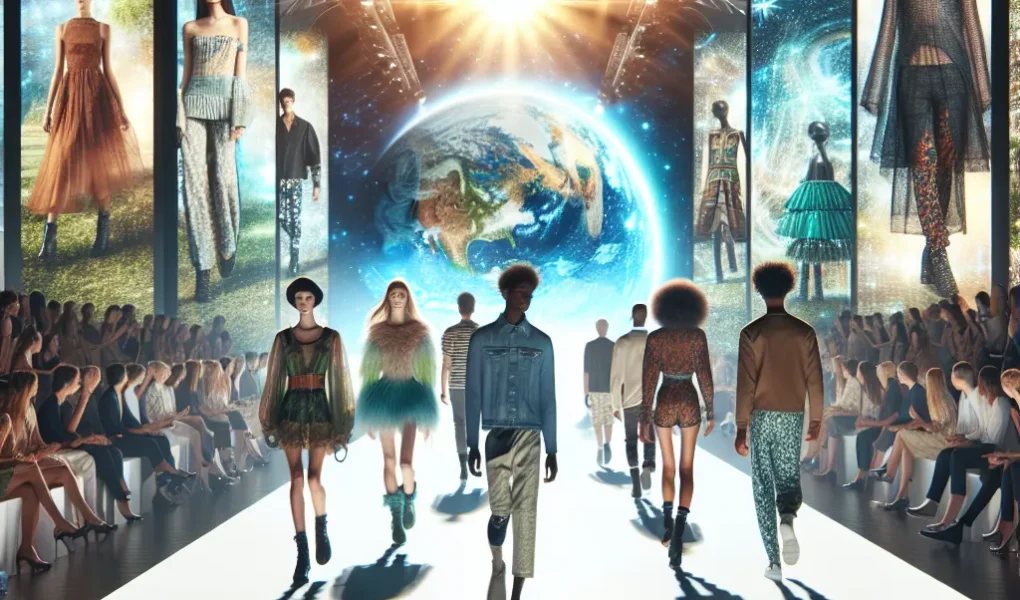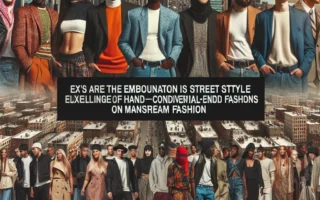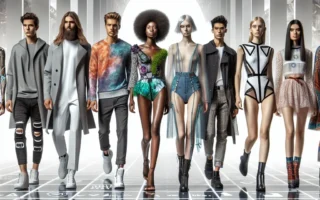The Rise of Ethical and Sustainable Fashion
The rise of ethical and sustainable fashion has been a significant trend in the fashion industry in recent years. Consumers are becoming more conscious of the environmental and social impact of their purchasing decisions, leading to a growing demand for sustainable and ethically-produced clothing.
One of the key drivers of this trend is the increasing awareness of the detrimental effects of fast fashion on the environment. The overproduction of clothing, use of environmentally harmful materials, and the generation of significant waste have all contributed to a shift in consumer attitudes. As a result, many fashion brands are now incorporating sustainable practices into their production processes, such as using eco-friendly materials, reducing waste, and implementing ethical labor standards.
Innovations in sustainable fashion have also played a crucial role in driving this movement forward. From advancements in textile recycling and upcycling to the development of new eco-friendly materials, such as organic cotton, bamboo, and recycled polyester, the industry is constantly evolving to meet the growing demand for sustainable options.
Furthermore, the rise of ethical and sustainable fashion has paved the way for greater transparency within the industry. Consumers are increasingly seeking information about the origins of the products they purchase, and brands are now more accountable for their supply chain practices. As a result, many companies are implementing traceability measures to provide visibility into their sourcing and production processes.
In conclusion, the rise of ethical and sustainable fashion is reshaping the industry by influencing consumer choices, driving innovation, and promoting greater transparency. As the demand for sustainable fashion continues to grow, it is essential for brands to adapt to these changing expectations and integrate ethical and sustainable practices into their core business strategies.
Innovative Materials Shaping the Future of Fashion
Sustainable fashion is not only about ethical manufacturing and fair labor practices, but also about embracing innovative materials that minimize the environmental impact of the industry. In recent years, there has been a surge in the development of groundbreaking materials that are shaping the future of fashion. One such material is Piñatex, a natural and sustainable non-woven textile made from pineapple leaf fibers, providing a cruelty-free alternative to leather. Another promising innovation is the use of Mylo, a sustainable alternative to traditional leather made from mycelium, the underground root system of mushrooms. These materials not only offer an eco-friendly option for fashion, but also push the boundaries of creativity and innovation in the industry. In addition, the development of recycled and upcycled textiles, such as Econyl made from regenerated nylon waste, is transforming the way we view and utilize materials in fashion. These innovative materials not only address the issue of waste in the fashion industry, but also pave the way for a more sustainable and circular approach to fashion production. By incorporating these materials into their designs, fashion brands are demonstrating a commitment to environmental sustainability and leading the way towards a more sustainable future for the industry.
Consumer Awareness and the Shift Towards Sustainable Fashion
Consumer awareness and the shift towards sustainable fashion have been gaining significant momentum in recent years. As more and more consumers become conscious of the environmental and social impact of the fashion industry, the demand for sustainable and ethical clothing has seen a substantial rise. This shift in consumer attitudes has prompted fashion brands to reevaluate their production processes and sourcing methods.
One of the key trends in sustainable fashion is the growing popularity of eco-friendly materials such as organic cotton, hemp, bamboo, and recycled fabrics. Consumers are actively seeking out clothing items that are made from these sustainable materials, which are not only better for the environment but also often of higher quality. This increased demand has led to a surge in the availability of sustainable fashion options in the market.
Furthermore, consumers are becoming more aware of the importance of supporting brands that prioritize fair labor practices and ethical working conditions. This has led to a rise in certifications such as Fair Trade and B Corp, which indicate that a brand is committed to ethical sourcing and production. As a result, consumers are actively seeking out these certifications when making purchasing decisions, further encouraging brands to embrace sustainable and ethical practices.
Innovations in the fashion industry, such as the development of circular fashion models and the implementation of recycling programs, have also contributed to the shift towards sustainability. Brands are increasingly exploring ways to create clothing that has minimal impact throughout its lifecycle, from production to disposal. This has resulted in the emergence of rental and resale platforms, as well as the adoption of circular design principles that prioritize durability and recyclability.
Overall, consumer awareness and the evolving preferences towards sustainable fashion have prompted significant changes in the industry. Brands are adapting to meet the growing demand for ethical and eco-friendly clothing, and the continued focus on sustainability is expected to drive further innovations in the fashion sector.



